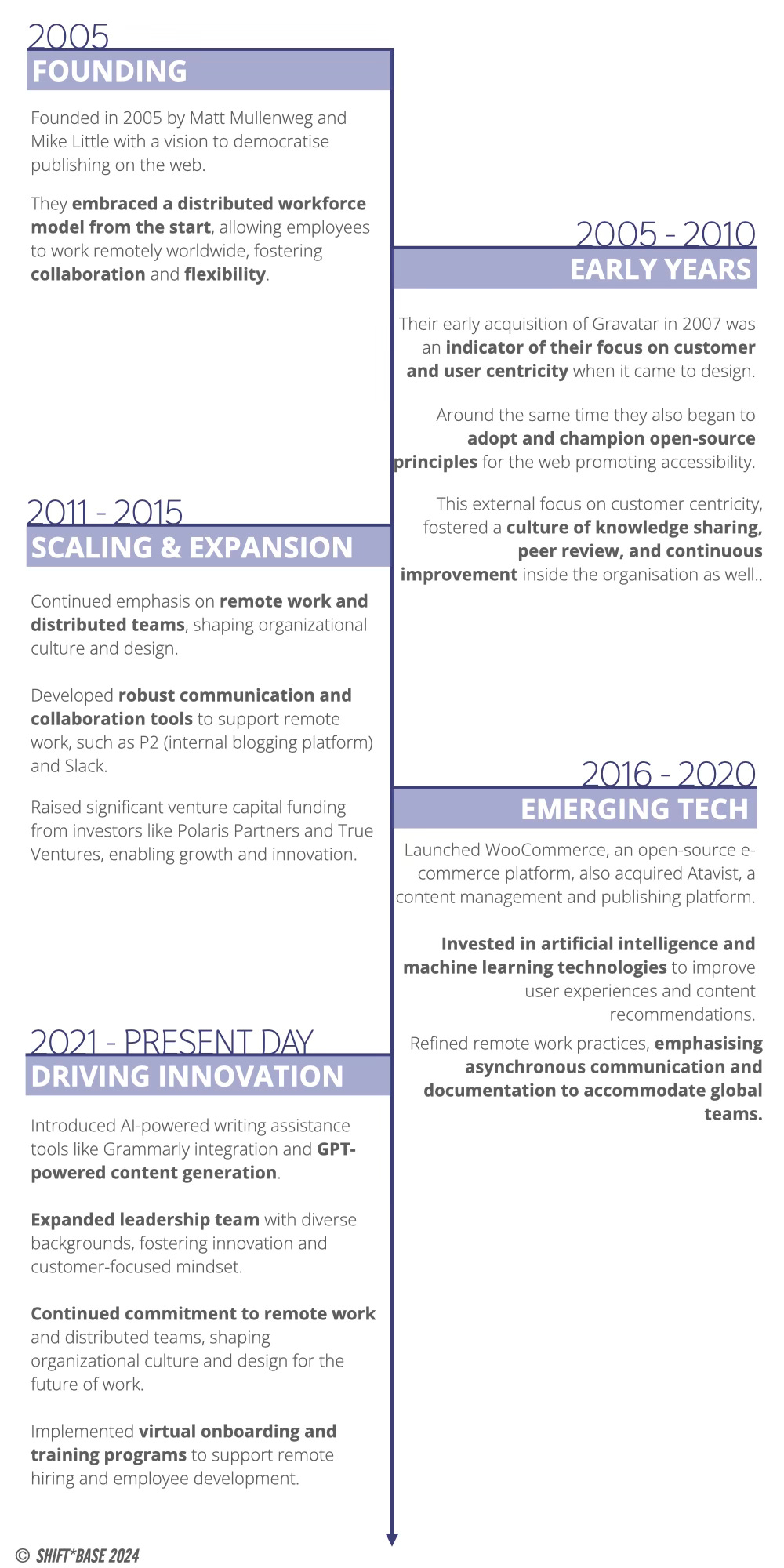Lessons from Automattic: Embracing Remote Work and Fostering a Culture of Trust, Autonomy, and Innovation
How this well-known, remote-first company unlocks the power of distributed teams and asynchronous collaboration
At a time when many companies are pushing for a return to traditional office setups, software company Automattic and other successful remote firms continue to stand out. While others cling to outdated notions of productivity tied to physical presence, Automattic has championed remote work from its inception (way before Covid-19), proving that innovation and success can thrive in a culture of trust and autonomy.
This unwavering commitment to a remote distributed workforce not only defies the current back-to-office trend, but also challenges the very foundation of conventional corporate structures, offering a provocative blueprint for the future of work.
In this case study, we will examine the essential components of a successful digital-first and remote mindset, and the role of a flexible, trust-based culture in navigating and leveraging the complexities of the modern digital landscape.
For organisations seeking to remain competitive and innovative, Automattic’s model offers actionable insights into creating a resilient and adaptive workforce capable of meeting the challenges of the digital age - lessons that can also be applied to non-hybrid/remote organisations.
Our own experience as a formerly office-based company that is now remote suggests this mode of working also confers an important advantage that is becoming more valuable thanks to AI: better documentation. Clarity, alignment and accountability are now always best achieved in meetings or calls, and so remote companies tend to put more effort into documenting their work. Over time, this corporate memory becomes a resource to mine and build on.
Automattic: An Overview
Automattic, the innovative force behind WordPress - the platform powering 43.4% of the entire internet, and 14.7% of the top 100 websites in the world - redefines how a modern software company operates.

What sets Automattic apart is their fully remote workforce, a bold departure from traditional office-based environments. This unique structure thrives on a culture of trust and autonomy, allowing employees the freedom to work in ways that best suit them. The focus at Automattic is on output, not on the superficial markers of a 'good' employee, like strict working hours, endless meetings, or formal attire.




